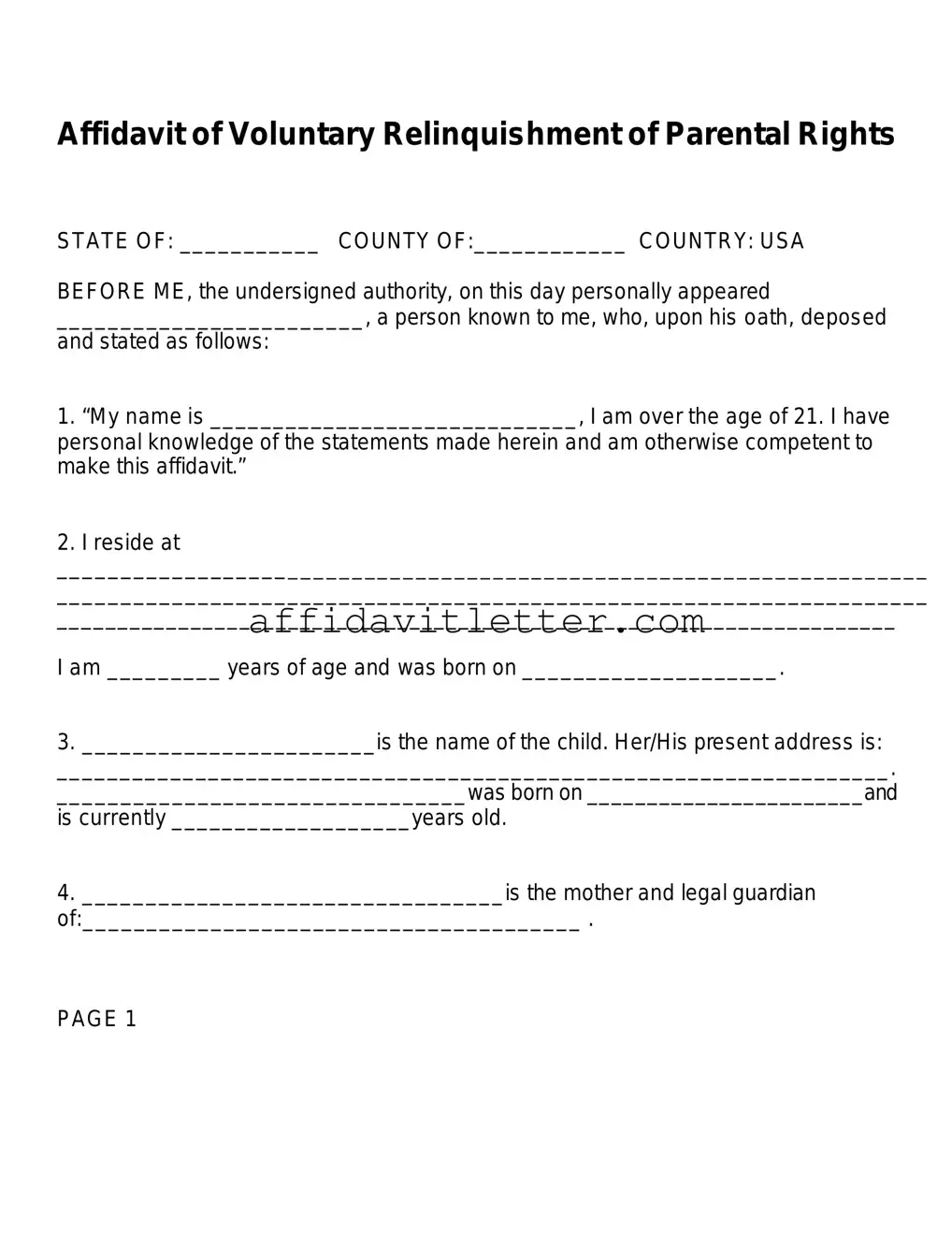Affidavit Parental Rights - Usage Steps
Filling out the Affidavit of Voluntary Relinquishment of Parental Rights is a significant step that requires attention to detail and accuracy. This document is a formal declaration by a parent to voluntarily give up their parental rights to a child. It's essential to ensure that every piece is filled out correctly to uphold the legal process. Here are the detailed steps to complete the affidavit properly.
- Start by filling in the state and county at the top of the form where it says "STATE OF:" and "COUNTY OF:" respectively.
- Enter your full name where it requests the appearance before the undersigned authority.
- Write your full name again in the first statement to declare your identity.
- In the space provided, detail your residential address thoroughly.
- Specify your age and the date of birth in the designated areas.
- Enter the child's full name, their present address, date of birth, and current age in the appropriate sections.
- Identify the child's mother and legal guardian by writing her full name where indicated.
- Choose either statement 5A or 5B by placing an X in the box to indicate your current child support status. Complete the statement by adding the child's name.
- Confirm that the child does not own any property of value by writing their name in the space provided in section 6.
- List the reasons you believe terminating your parental rights is in the best interest of the child. Use the space provided and attach additional sheets if necessary, ensuring they are numbered as instructed.
- Write the full name and address of the child's biological mother and current legal guardian in the spaces provided in section 8.
- Acknowledge your understanding of parental rights and duties and your decision to relinquish these rights in section 9.
- Indicate your awareness of the irrevocability of this action, barring the 11-day revocation period, in section 10.
- Outline your right to revoke this relinquishment within 11 days and the procedure to do so in section 11.
- Sign the affidavit in the presence of a notary public and a witness on the date provided, then fill in the notary's details, including the commission expiration date.
- Ensure the witness signs the document and prints their name where indicated.
Once all steps have been carefully followed and the form is completed, it's crucial to retain a copy for your records. This legal document solidifys a significant decision, and having a copy on hand is important for future reference.
